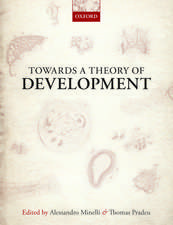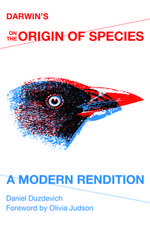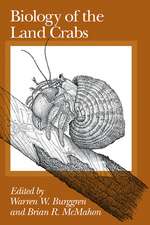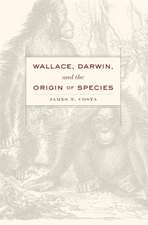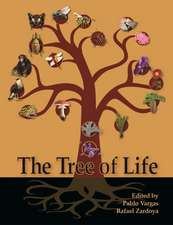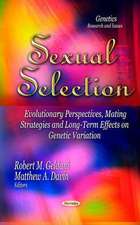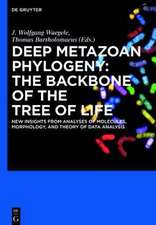Biological Control: Ecology and Applications
Autor George E. Heimpel, Nicholas J. Millsen Limba Engleză Hardback – 2 apr 2017
Preț: 440.86 lei
Preț vechi: 495.35 lei
-11% Nou
Puncte Express: 661
Preț estimativ în valută:
84.36€ • 88.31$ • 69.80£
84.36€ • 88.31$ • 69.80£
Carte disponibilă
Livrare economică 15-29 martie
Preluare comenzi: 021 569.72.76
Specificații
ISBN-13: 9780521845144
ISBN-10: 0521845149
Pagini: 386
Ilustrații: 117 b/w illus. 17 tables
Dimensiuni: 195 x 254 x 20 mm
Greutate: 1.06 kg
Editura: Cambridge University Press
Colecția Cambridge University Press
Locul publicării:Cambridge, United Kingdom
ISBN-10: 0521845149
Pagini: 386
Ilustrații: 117 b/w illus. 17 tables
Dimensiuni: 195 x 254 x 20 mm
Greutate: 1.06 kg
Editura: Cambridge University Press
Colecția Cambridge University Press
Locul publicării:Cambridge, United Kingdom
Cuprins
Foreword Jacques Brodeur; Preface; 1. Definitions and interactions; 2. Biological control and invasion biology; 3. Importation biological control – the scope of success; 4. Negative consequences of biological control; 5. Ecological risk analysis in biological control; 6. Population dynamics in biological control; 7. Biological control and evolution; 8. Augmentation: orchestrating local invasions; 9. Conservation biological control I: orchestrating natural control through habitat manipulation; 10. Conservation biological control II: orchestrating natural control through pesticide reduction or selection.
Recenzii
'Biological control is placed very skilfully within the context of the ecological principles of biological invasions. The authors argue that we have now reached a point where the balance between risks and benefits of biological control is well accepted rather than contested, bringing with it new concepts and approaches to environmental risk assessment. New tools to enhance biological control success and how this can be measured; the emerging focus on conservation and natural biological control; and the growing interest in wider applications of biological control are very lucidly described. This is an inspiring book, with clearly articulated concepts, generous use of case studies and figures to illustrate arguments, and it is extensively referenced. It will prove to be an invaluable text for current and future researchers.' Barbara Barratt, AgResearch, New Zealand
'As ecologists and practicing biological control specialists, Heimpel and Mills bring a unique perspective to the study and practice of biological control … their analysis of the principles and practices of modern biological control is deeply rooted in fundamental invasion biology, population dynamics, and evolutionary ecology. Drawing examples and theory from ecological studies, they analyze past and current biological control practices, highlight where they conform or deviate from ecological theory, and shed light on how practices may be improved … Aimed at advanced undergraduates, graduate students, and researchers the text is replete with examples that illuminate the rich history of biological control and its future applications. Given the multifaceted concepts that emerge from each chapter, the text would particularly lend itself to a discussion oriented - flipped classroom - approach.' Douglas A. Landis, Michigan State University
'This book covers biological control from a conceptual viewpoint as well as emphasizing how this pest control approach is now used in an environmentally safe way. The two authors of this excellent book are both highly regarded teachers and researchers in the field of biological control. The authors describe and provide examples of major biological control strategies with advanced coverage of the theoretical ecological underpinnings. Over the past several decades, the field of biological control has undergone a lot of criticism, in particular due to past releases of agents that were not host specific, and this book describes the important changes in the field so that today it is considered a green, as well as effective, pest control approach.' Ann Elizabeth Hajek, Cornell University, New York
'…a volume of remarkable breadth that, in addition to serving as the new standard textbook on biological control, will be of unusual interest to invasion biologists.' Daniel Simberloff, Biol Invasions
'It is an oftentimes cerebral and always well-referenced discussion of scientific issues facing biological control, and their implications for its practice. … The volume is an advanced tour de force by two leaders in the field …' Donald C. Weber, The Quarterly Review of Biology
'As ecologists and practicing biological control specialists, Heimpel and Mills bring a unique perspective to the study and practice of biological control … their analysis of the principles and practices of modern biological control is deeply rooted in fundamental invasion biology, population dynamics, and evolutionary ecology. Drawing examples and theory from ecological studies, they analyze past and current biological control practices, highlight where they conform or deviate from ecological theory, and shed light on how practices may be improved … Aimed at advanced undergraduates, graduate students, and researchers the text is replete with examples that illuminate the rich history of biological control and its future applications. Given the multifaceted concepts that emerge from each chapter, the text would particularly lend itself to a discussion oriented - flipped classroom - approach.' Douglas A. Landis, Michigan State University
'This book covers biological control from a conceptual viewpoint as well as emphasizing how this pest control approach is now used in an environmentally safe way. The two authors of this excellent book are both highly regarded teachers and researchers in the field of biological control. The authors describe and provide examples of major biological control strategies with advanced coverage of the theoretical ecological underpinnings. Over the past several decades, the field of biological control has undergone a lot of criticism, in particular due to past releases of agents that were not host specific, and this book describes the important changes in the field so that today it is considered a green, as well as effective, pest control approach.' Ann Elizabeth Hajek, Cornell University, New York
'…a volume of remarkable breadth that, in addition to serving as the new standard textbook on biological control, will be of unusual interest to invasion biologists.' Daniel Simberloff, Biol Invasions
'It is an oftentimes cerebral and always well-referenced discussion of scientific issues facing biological control, and their implications for its practice. … The volume is an advanced tour de force by two leaders in the field …' Donald C. Weber, The Quarterly Review of Biology
Notă biografică
Descriere
This book enhances our understanding of biological control, integrating historical analysis, theoretical models and case studies in an ecological framework.


